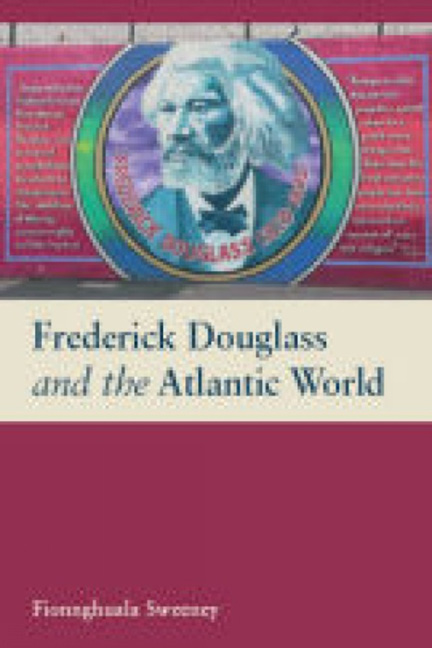Book contents
- Frontmatter
- Contents
- Introduction: Frederick Douglass and the Atlantic World
- 1 ‘The Republic of Letters’: Frederick Douglass, Ireland and the Irish Narratives
- 2 Friends and Allies: The Economics of the Text
- 3 An American Slave: Representing the Creole Self
- 4 The Hidden Ireland: Social Commentary and Public Witness
- 5 ‘Mask in Motion’: Dialect Spaces and Class Representation
- 6 Race, Civilization, Empire
- 7 Models of Progress: Ireland, Haiti and the Atlantic
- Conclusion
- Bibliography
- Index
3 - An American Slave: Representing the Creole Self
- Frontmatter
- Contents
- Introduction: Frederick Douglass and the Atlantic World
- 1 ‘The Republic of Letters’: Frederick Douglass, Ireland and the Irish Narratives
- 2 Friends and Allies: The Economics of the Text
- 3 An American Slave: Representing the Creole Self
- 4 The Hidden Ireland: Social Commentary and Public Witness
- 5 ‘Mask in Motion’: Dialect Spaces and Class Representation
- 6 Race, Civilization, Empire
- 7 Models of Progress: Ireland, Haiti and the Atlantic
- Conclusion
- Bibliography
- Index
Summary
The overseas editions of Douglass's autobiography repositioned the Narrative as a forum in which transnational power relations and the struggle for agency were mediated. Such repositioning helps illustrate the opportunities provided to Douglass by the slave narrative genre, particularly in terms of its semantic engagement with pro- and anti-slavery discourse, and related negotiation of the domestic divide between North and South in the United States. For the transnational Narrative not only establishes the international impact of anti-slavery activity, it also enables new national readings. It is therefore useful to review the transatlantic Narratives against the literary and political context provided by the United States at mid-century.
The United States at this point reflected the changing circumstances of American self-definition. National identity was being refashioned amidst the competing pulls of North, South and West. None was immune to the problems of slavery. One of the major national debates of the period concerned western expansion, specifically the issue of slavery and its legality in the newly incorporated territories. Although discussions of western expansion in US culture have emphasized the primacy of the frontier experience – civilization's encounter with savagery leading to the metaphysical triumph of freedom within the American cultural imaginary – the frontier territories also involved more earthly considerations of liberty at an historical moment in the United States notable for its ideological divisions. Nebraska and Texas illustrate that locations beyond North and South were increasingly stages upon which the realities as well as the debates around freedom and bondage were played out.
Much of that debate took place in the Northeast, Douglass's home after his escape from Maryland in 1838. New England was also the home of the American Renaissance, and the transcendentalist vision underpinned by romantic ideals of nature and freedom that informed it. F.O. Matthiesson writes that the ‘democratic core of North Eastern transcendentalism believed that an American historian must write in the interests of mankind, in the spirit of the nineteenth-century’. At the heart of that ‘democratic core’ lay an ideal of freedom, an ideal increasingly confronted by the reality of slavery. Douglass's work, which combines personal history with social critique and an impulse towards reform, may be placed within the Renaissance camp. As Andrews argues, ‘in an era charged with revolutionary romanticism … the slave who endeavors to recover his freedom is associating with himself no small part of the romance of the time’.
- Type
- Chapter
- Information
- Frederick Douglass and the Atlantic World , pp. 54 - 69Publisher: Liverpool University PressPrint publication year: 2007



